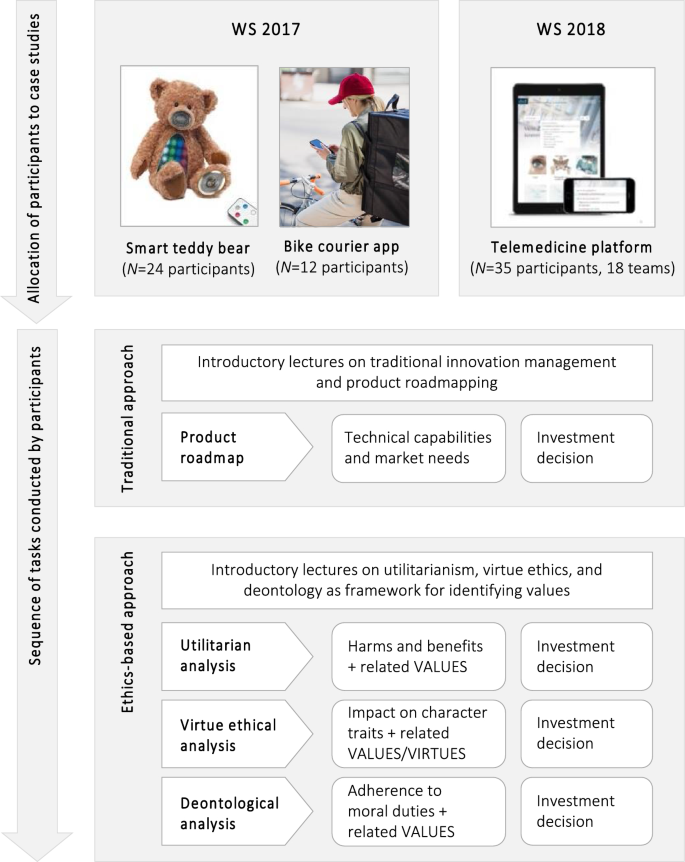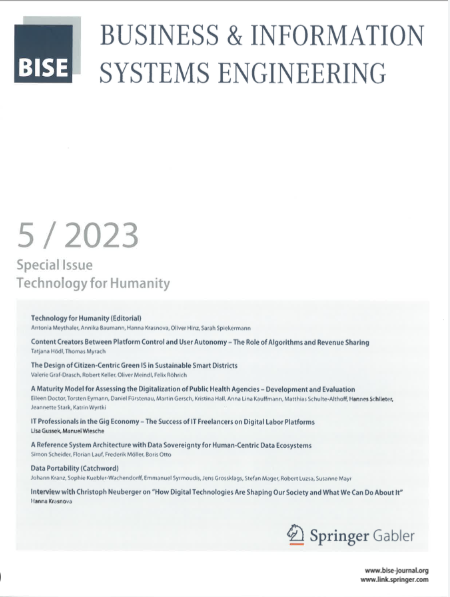The Power of Ethics: Uncovering Technology Risks and Positive Value Potentials in IT Innovation Planning
IF 10.4
3区 管理学
Q1 Computer Science
引用次数: 0
Abstract
Abstract The digital transformation of the economy is accelerating companies’ engagement in information technology (IT) innovation. To anticipate which technologies will become relevant over time and integrate them in their innovation plans, companies often rely on product roadmaps as strategic tools. However, ethical issues resulting from ubiquitous IT use have shown the need to accommodate hyped technical advancements in information systems (IS) design and acknowledge human values with moral relevance. Scholars have argued that this moral relevance can only come from an ethical framework. The empirical study presented here investigates whether the three ethical theories of utilitarianism, virtue ethics, and deontology can complement traditional innovation planning approaches. The mixed-method study covers three IT products – a digital toy, a food-delivery app and a telemedicine system. The results reveal that the three ethical theories boost creativity around values and enrich IT innovation planning by supporting the acknowledgment of more and higher value principles (e.g., freedom or personal growth), more diverse value classes (e.g., individual and social values) as well as more original values (e.g., human contact) in system design. What is more, participants identify and mitigate potential social and ethical issues associated with the IT product. Against this background, the findings in this paper suggest that a “value-based roadmapping” approach could be a vital stimulus for future IT innovation planning.

伦理的力量:揭露IT创新规划中的技术风险和积极价值潜力
经济的数字化转型正在加速企业参与信息技术(IT)创新。为了预测哪些技术将随着时间的推移变得相关并将其整合到创新计划中,公司通常依赖产品路线图作为战略工具。然而,无处不在的IT使用所导致的伦理问题表明,需要在信息系统(IS)设计中适应大肆宣传的技术进步,并承认与道德相关的人类价值观。学者们认为,这种道德相关性只能来自伦理框架。本文的实证研究探讨了功利主义、美德伦理和义务论这三种伦理理论是否可以补充传统的创新规划方法。这项混合方法的研究涵盖了三种IT产品——一个数字玩具、一个送餐应用和一个远程医疗系统。结果表明,这三种伦理理论通过支持在系统设计中承认更多和更高的价值原则(如自由或个人成长)、更多样化的价值类别(如个人和社会价值)以及更原始的价值(如人际接触),促进了围绕价值观的创造力,丰富了IT创新规划。更重要的是,参与者识别并减轻与IT产品相关的潜在社会和道德问题。在此背景下,本文的研究结果表明,“基于价值的路线图”方法可能是未来IT创新规划的重要刺激因素。
本文章由计算机程序翻译,如有差异,请以英文原文为准。
求助全文
约1分钟内获得全文
求助全文
来源期刊

Business & Information Systems Engineering
工程技术-计算机:信息系统
CiteScore
11.30
自引率
7.60%
发文量
44
审稿时长
3.0 months
期刊介绍:
BISE (Business & Information Systems Engineering) is an international scholarly journal that undergoes double-blind peer review. It publishes scientific research on the effective and efficient design and utilization of information systems by individuals, groups, enterprises, and society to enhance social welfare. Information systems are viewed as socio-technical systems involving tasks, people, and technology. Research in the journal addresses issues in the analysis, design, implementation, and management of information systems.
 求助内容:
求助内容: 应助结果提醒方式:
应助结果提醒方式:


